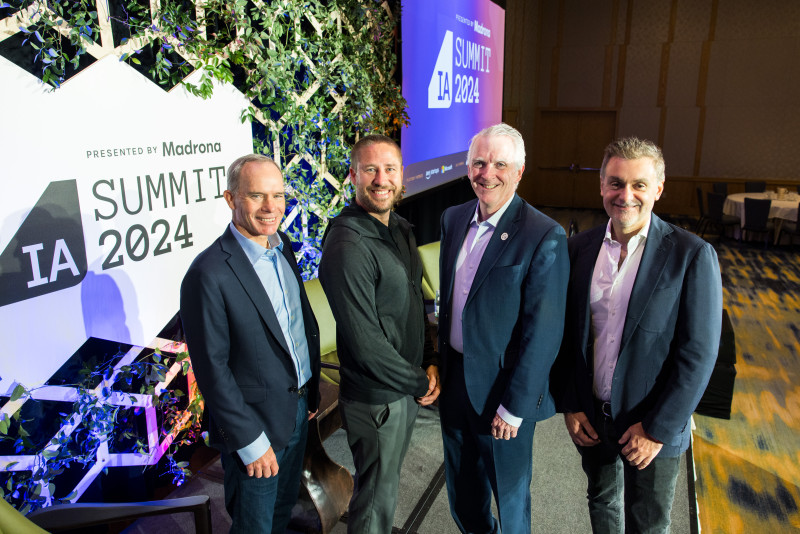Can AI cure cancer? New alliance unites tech giants and big research orgs in quest for breakthroughs
Four national cancer research organizations, spearheaded by Seattle’s Fred Hutch Cancer Center, will work together in an unprecedented alliance to use artificial intelligence to battle cancer.
The newly established Cancer AI Alliance brings together the Dana Farber Cancer Institute, Fred Hutch, Memorial Sloan Kettering Cancer Center, and The Sidney Kimmel Comprehensive Cancer Center and Whiting School of Engineering at Johns Hopkins, along with Amazon Web Services, Deloitte, Microsoft, and NVIDIA.
It’s supported with an initial $40 million in funding, technology, and other resources from AWS, Deloitte, Microsoft, NVIDIA and Slalom.
Fred Hutch will serve as the coordinating center for the initiative.
“What was interesting about this whole process was how we were able to bring together these four incredible cancer centers, and these four major tech companies,” said Dr. Thomas Lynch Jr., the Fred Hutch president, in an interview after announcing the initiative on stage at Madrona’s IA Summit 2024 in Seattle.

“All of us tend to be competitors with each other in most of what we do, but for this project, people were able to bury that competitive spirit and bring out a collaborative spirit,” Lynch said. “I just could not be more excited about what this could offer.”
Lynch noted that academic medical research institutes don’t normally have access to the tools, GPUs, and computing power necessary to train and run AI models at scale.
“This enables us to have access to the very best tools in AI, to be able to use the incredibly rich data that exists in all of our centers,” he said. “We hope this is just the start. We hope this is not just four centers. We hope that we bring in many more of the nation’s top cancer centers in this process.”
In addition to taking on new research challenges together, the cancer centers say they will share infrastructure and collaborate on industry standards. One of the goals is to expose the underlying data trends for rare forms of cancer and smaller populations.
The Cancer AI Alliance “will provide the computing infrastructure to members of the alliance to process high volumes of cancer data generated during routine cancer care, such as electronic health records, pathology images, medical images and genome sequencing,” according to a news release. “This data, when paired with AI, could lead to novel insights in tumor biology, treatment resistance, and identification of new therapeutic targets.”
The release added, “All of this will be developed while maintaining data security, privacy and alignment with regulatory and ethical standards.”
Will AI cure cancer? “AI is going to be part of curing cancer,” Lynch said. “It’s going to be part of the answer.”

